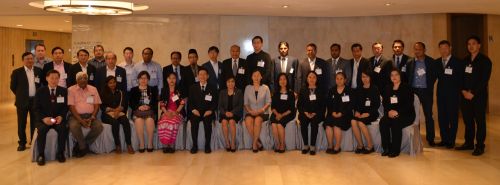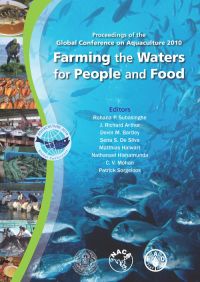Regional Consultation on Responsible Production and Use of Feed and Feed Ingredients for Sustainable Growth of Aquaculture in Asia-Pacific
31 July 2017 | 102237 views | Bangladesh, Better management practices, Cambodia, China, India, Indonesia, Malaysia, Maldives, Myanmar, Nepal, Nutrition and feeding, Pakistan, Philippines, Thailand, Vietnam

A regional consultation on aquaculture feed production and use in Asia-Pacific was therefore conducted by Food and Agriculture Organization of the United Nations in collaboration with NACA and the Thailand Department of Fisheries from 7-9 March 2017.
The objective of the consultation was to review and share the knowledge on the current situation of aquaculture feed production and use, in respects of production status, demand and supply, sourcing of ingredients, government policies and institutional support, ongoing progress and development gaps. The consultation also tried to put forward regional strategies and develop a plan of action to promote responsible utilisation of feed and feed ingredients for sustainable growth of aquaculture in Asia-Pacific through sharing of available knowledge, technological innovations and scaling up successful practices and further research and technology development.
This collection contains audio recordings of the technical presentations made at the consultation by experts, international organisations, the private sector and governments in the region. The report of the consultation is in press and will be made available for download in due course.
Creative Commons Attribution.
